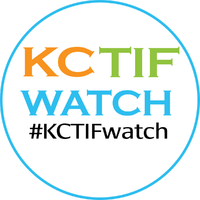Kansas City, Missouri, Question 1, Property Tax Cap for Economic Development Projects Initiative (June 2019)
| Question 1: Kansas City Property Tax Cap for Economic Development Projects Initiative |
|---|

|
| The basics |
| Election date: |
| June 18, 2019 |
| Status: |
| Topic: |
| Local property tax |
| Related articles |
| Local property tax on the ballot June 18, 2019 ballot measures in Missouri Jackson County, Missouri ballot measures Other counties City budget on the ballot |
| See also |
| Kansas City, Missouri |
A citizen initiative designed to implement a cap on tax increment funding (TIF) for economic development was on the ballot for Kansas City voters in Jackson, Cass, Clay, and Platte counties in Missouri on June 18, 2019. It was defeated.
| A yes vote was a vote in favor of enacting a 50 percent cap on the amount of ad valorem property taxes that may be used toward economic development projects in the city. |
| A no vote was a vote against enacting a 50 percent cap on the amount of ad valorem property taxes that may be used toward economic development projects. |
In 2017, the city implemented a 75 percent incentive cap on ad valorem tax incentives for economic development. Question 1 was a citizen initiative designed to enact a more restrictive cap of 50 percent on the amount of ad valorem property taxes that the city could use toward economic development incentives.[1][2]
Election results
|
Kansas City Question 1 |
||||
|---|---|---|---|---|
| Result | Votes | Percentage | ||
| Yes | 23,492 | 34.94% | ||
| 43,744 | 65.06% | |||
Text of measure
Ballot question
The ballot question was as follows:[1]
| “ |
Shall the City of Kansas City cap the amount of ad valorem real property taxes that may be utilized in furtherance of economic development projects through the Land Clearance for Redevelopment Authority of Kansas City, Missouri, the Planned Industrial Expansion Authority of Kansas City, Missouri, the Kansas City, Missouri Port Authority, the Tax Increment Financing Commission of Kansas City, Missouri and the City of Kansas City, Missouri, by prohibiting the abatement, exemption or redirection of more than fifty percent (50%) of the ad valorem real property taxes that would have been due and payable but for the utilization of economic development incentives?[3] |
” |
Full text
The full text of the measure is available here.
Support
Proponents
The Coalition for Kansas City Economic Development Reform, also known as KC TIF Watch led the campaign in favor of Question 1.[4]
Arguments
KC TIF Watch included the following statement in support of Question 1 on its Facebook page:[4]
| “ |
The City of Kansas City, despite objections from citizens and taxing jurisdictions, continues to give generous incentives for developments located in areas that no longer need it. Money is diverted from voter-approved public services in order to fund these projects, which are in areas where most voters can't even afford to live. These voter-approved public services suffer while developers build luxury housing downtown, in the crossroads and the Plaza. We want to provide more equity for the taxing jurisdictions, while continuing to spur development in the city, especially east of Troost. [3] |
” |
| —KC TIF Watch | ||
Opposition
Opponents
The Committee for Kansas City Jobs led the campaign in opposition to Question 1.[5]
The Greater Kansas City Chamber of Commerce and former Kansas City mayor Kay Barnes opposed Question 1.[5][2]
Arguments
Kay Barnes said, "It’s clear to me that 95 percent of the population doesn’t understand how TIF works. This is an extremely dangerous question on the ballot. I shudder about what it will mean if it passes."[5]
The Greater Kansas City Chamber of Commerce made the following statement in opposition to Question 1:[2]
| “ |
We are just beginning to see the positive effects on development deals using the 75 percent cap. Other reasons for the KC Chamber’s opposition:
|
” |
| —KC Chamber of Commerce | ||
Path to the ballot
This measure was put on the ballot through a successful initiative petition campaign led by the Coalition for Kansas City Economic Development Reform, also known as KC TIF Watch. The signature requirement to place an initiative on the ballot in Kansas City is equal to 5 percent of the total vote cast for mayoral candidates at the last preceding regular municipal election. KC TIF Watch needed to collect 1,708 signatures. On November 29, 2018, the city clerk verified that proponents had submitted 2,321 valid signatures.[6]
See also
External links
Support
Footnotes
- ↑ 1.0 1.1 Kansas City Elections Board, "Sample Ballot," accessed May 9, 2019
- ↑ 2.0 2.1 2.2 KC Chamber, "KC Chamber Opposes Question 1 on June Ballot," accessed May 20, 2019
- ↑ 3.0 3.1 3.2 Note: This text is quoted verbatim from the original source. Any inconsistencies are attributable to the original source.
- ↑ 4.0 4.1 Facebook, "KC TIF Watch," accessed May 20, 2019
- ↑ 5.0 5.1 5.2 City Scene KC, "Group Hopes to Raise $500K to Defeat KC Incentive Cap Initiative," May 8, 2019
- ↑ Kansas City Business Journal, "Coalition has signatures to force vote on new KC incentives cap," November 30, 2019
State of Missouri Jefferson City (capital) | |
|---|---|
| Elections |
What's on my ballot? | Elections in 2025 | How to vote | How to run for office | Ballot measures |
| Government |
Who represents me? | U.S. President | U.S. Congress | Federal courts | State executives | State legislature | State and local courts | Counties | Cities | School districts | Public policy |





